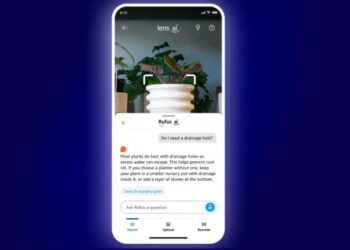Select Language:
In a world where digital privacy is becoming increasingly important, messaging apps are constantly evaluated for their security features. This article will delve into the privacy aspects of Bitchat and iMessage to understand which app stands out in safeguarding user data.
Overview of Bitchat and iMessage
Bitchat App
Bitchat is a newer messaging platform that emphasizes user privacy and security. Here are some of its key features:
- End-to-End Encryption: Bitchat employs robust encryption protocols to ensure that only the sender and receiver can read the messages.
- No Data Storage: The app does not store user conversations on its servers, reducing the risk of data breaches.
- Anonymous Registration: Users can create accounts with minimal personal information, enhancing anonymity.
iMessage
Apple’s iMessage is a popular messaging service known for its seamless integration with iOS devices. Its privacy features include:
- End-to-End Encryption: Like Bitchat, iMessage also utilizes strong encryption to keep conversations secure.
- Data Storage: iMessage retains some data on Apple’s servers for syncing purposes, which can be a potential vulnerability.
- Apple ID Requirement: Users must create an Apple ID, which ties personal information to their messaging activity.
Privacy Comparison
Encryption Standards
Both Bitchat and iMessage utilize end-to-end encryption, making it difficult for third parties to intercept messages. However, Bitchat is more stringent in its approach:
- Default Encryption: Bitchat encrypts all messages by default, while iMessage users must ensure that their settings do not disable encryption features.
- Third-Party Audits: Bitchat has undergone external audits to validate its security protocols, enhancing its credibility.
Data Retention Policies
Data retention is a critical factor when assessing privacy:
- Bitchat: The app does not store chat histories, minimizing the possibility of data leaks. Once messages are delivered, they are deleted from Bitchat’s servers.
- iMessage: While messages are encrypted, Apple keeps some data on its servers for a certain period, which could potentially be accessed through legal requests.
User Anonymity
User anonymity is an essential privacy concern:
- Bitchat: Allows anonymous registration and does not require any personal information, making it a preferable choice for privacy-conscious individuals.
- iMessage: Ties user data to an Apple ID, which might detract from anonymity and could be linked back to the user.
Security Features
Additional Security Measures
Bitchat offers features aimed at enhancing user security:
- Self-Destructing Messages: Users can send messages that automatically delete after a set time.
- No Phone Number Required: Users can communicate without sharing their phone numbers, reducing exposure to unwanted contact.
iMessage also has notable security features, though they differ in focus:
- Two-Factor Authentication: iMessage users can enable two-factor authentication for added security on their Apple ID.
- Message Filtering: iMessage can filter unknown senders, helping users avoid spam and phishing attempts.
Stance on Data Requests
How these apps handle government data requests also plays a vital role in privacy:
- Bitchat: Due to its lack of stored data, Bitchat claims it cannot comply with government data requests, effectively making users’ messages inaccessible even to the company.
- iMessage: Apple has a history of resisting overreaching data requests but can provide information if it is stored and if a warrant is issued.
User Perception and Trust
Reputation Among Users
Trust in a messaging app often hinges on its reputation regarding privacy:
- Bitchat: The app has gained traction among users who prioritize anonymity and privacy, although it is relatively new and may lack the polished track record of older apps.
- iMessage: As a well-established player, iMessage has a strong user base, but its tie to the Apple ecosystem can cause concerns about broader data collection practices.
Community Feedback
User reviews and discussions are essential for gauging real-world privacy experiences:
- Bitchat Users: Many users praise the app for its straightforward, privacy-focused approach, often highlighting its commitment to minimal data retention.
- iMessage Users: While many appreciate the convenience and integration with other Apple services, concerns about data storage and the need for an Apple ID persist.
Final Thoughts on Privacy
Assessing the privacy of Bitchat and iMessage reveals that both platforms offer end-to-end encryption. However, Bitchat takes a more aggressive stance on user anonymity and data retention. iMessage, while secure, ties user data to an Apple ID and retains some information on its servers, potentially posing a higher risk for privacy-conscious users.







